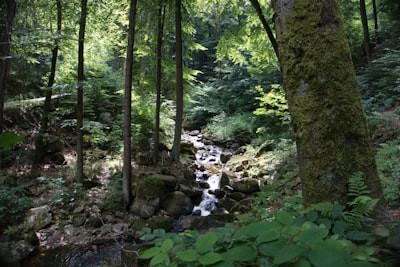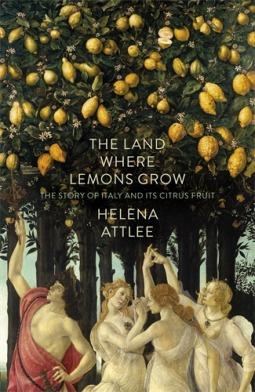Learn more about problemsolving with this collection
How to delegate tasks efficiently
How to use technology to your advantage
How to optimize your work environment
The Lemons
The Land Where Lemons Grow uses the colorful past of six different kinds of Italian citrus to tell an unexpected history of Italy, from the arrival of citrons in 2nd century Calabria, through Arab domination of Sicily in the 9th century, to slow food and cutting-edge genetic research in the 21st. Along the way Helena Attlee traces the uses of citrus essential oils in the perfume industry and describes the extraction of precious bergamot oil; the history of marmalade and its production in Sicily; the extraordinary harvest of 'Diamante' citrons by Jewish citron merchants in Calabria ...
6
65 reads
The Mafia among the lemon gardens ...
....the primitive violence of the Battle of Oranges, when the streets in Ivrea run with juice. She reveals the earliest manifestations of the Mafia among the lemon gardens outside Palermo, and traces the ongoing links between organised crime and the citrus industry. By combining insight into the country's cultural, political and economic history with travel writing, horticulture and art, Helena Atlee gives the reader a unique view of Italy.Helena Attlee is the author of four books about Italian gardens, and others on the cultural history of gardens around the world.
6
39 reads
Mignon, the daughter of the wandering musician
"The land where lemons bloom". The author of this famous phrase, referring to Wolfang Goethe, is found in Wilhelm Meister where Mignon, daughter of the wandering musician, intones it to describe a fantastic and imaginary world, blue skies, marble statues and thunderous waterfalls, not without hiding a kind of threat under this hidden beauty.
6
30 reads
Robert Browning
When Wilhelm asks her where this place is, she replies: "Italy! If you go to Italy, take me with you, I'm too cold here". The verses contain the meaning of what the English poet Robert Browning meant when he called our country "the land of the lands", and the American writer E. M. Forster called it "a place that has shocked everyone since the beginning of the world".
6
20 reads
An Object of Desire
The lemon, according to the author of this recent book, is the last metaphor referring to Italy understood as "an object of desire for us chilly mortals on the other wrong side of the Alps". In Goethe's time, northern Europeans, the wealthy, used to create elegant "orangeries", artificial orange groves where during the long winter months the precious trees could grow without problems until, one summer day, sweaty gardeners, in the summer sun, they would have watered them.
6
17 reads
Hesperides
These places were the fantastic "Hesperides". The golden apples grew in the south where the ancient wisdom of farmers, cooks, perfumers, technicians and entrepreneurs placed the lemon trees together with the vineyards and olive groves, archetypes of Mediterranean fertility.
6
21 reads
From Himalayan Forest
Oranges, lemons, clementines and grapes are not native to these places. Lemons began to grow for the first time in the undergrowth of the Himalayan forest, oranges and lemons from the jungle of Burma and Assam, mandarins from China, of course, and grapefruit from the islands of Malaysia. Traveling west, they were brought on the trade routes by the Muslim conquerors to Andalusia and Sicily. Here, with appropriate irrigation, grafts were adapted to the climate of the places.
6
17 reads
Sicilian Words
The author of the book maintains and demonstrates that the Sicilian words such as "zagara", "senia" and "gebbia" derive directly from Arabic. At the time of the Muslim emirs and the Norman kings, the paradise gardens flourished full of oranges and lemons, whose scents were mixed, then as now, with the music of the fountains and canals. Poems were written that bore the name of "garden poems" dedicated to the celebration of the intense colors of fruits and leaves, to recreate atmospheres and love rituals.
6
9 reads
The "Conca d'Oro"
Nowadays, unfortunately, things are different in that place that still bears the name of "Conca d'oro", the strip of fertile land that stretches between Palermo, the beach and the mountains. The writer refuses to go into the details of the notorious reality that is the modern cultivation of lemons in a country like Italy that has to face the sad reality of organized crime.
6
9 reads
The Mafia
The Mafia, after all, was born in the Conca d'Oro, as an organization based on blackmail against farmers. There are countless killings in these fields of many farmers who had the courage to oppose blackmail, extortion and more. The bombings that the allied troops made in Palermo during the last world war allowed the Mafia to complete the destruction of the environment by favoring building speculation and the destruction of a territory.
6
8 reads
Miniature lemons
Attlee goes up the peninsula and stays in Liguria. She writes about a family of small owners who grow miniature lemons and hybrid creations such as the tangerine. Insects harmful to plants are kept away by means of bottled anchovies dipped in ammonia. In these places the chinotto di Savona grows, the small Chinese orange used to flavor bitters and digestives. As with the land where lemons bloom, this was certainly the mountain crater around Lake Garda where the precious fruit, collected by beautifully dressed women, was transported by mule for a journey that ended in Hungary, Poland or Russia.
6
6 reads
The Word "Lemon"
The author of the book knows the origins and the etymology of the word "lemon" well. It derives from the name that the ancient Romans gave to the border "limen". The Garda lemon is very acidic, with a very aromatic peel. Its story is told through the lens of the past, as did the wealthy 19th century families in Krakow, Prague and Liv as well as the carvings in their splendid lakeside residences until they were destroyed during World War I. .
6
11 reads
Lemons in Calabria
In Calabria lemon growers have traveled even farther, favored by the Jews who believe that Moses, that's right, Moses, sent messengers to this region to collect proof of the perfect lemon, which in Hebrew is called "esrog ", fruit of the tree of God used to celebrate the festival of Sukkoth. The Lubavitcher rabbis check the annual harvest by carefully examining each tree for any possible deformation, choose the accessory accessories of the original flower that could be combined with the palm, myrtle and willow for Thanksgiving.
6
10 reads
An Experienced Gardener
Attlee is an experienced gardener and has been working on this volume for over ten years. She decides to make a geographical journey on the peninsula by intertwining in her story facts related to the history of places and crops, with memories of travelers and lists of recipes on the subject. You are looking for and discovering the Italian soul as it is linked to this fruit. You travel from the gardens of Florence to the terraces of Amalfi, on the shores of Lake Garda, the Ligurian Riviera, you speak of the bergamot of Calabria, of the extraordinary oranges of Catania.
6
8 reads
The Battle of Oranges
She describes the strange battle of oranges in Ivrea where there are no cultivation of the fruit, the noble and aristocratic Sicilian jams. She also talks about his lucky encounter with a Jew who comes to Diamante every year to reserve the lemons used during the Jewish festival of Sukkoth. For Attlee, this fruit is both cheerful and sad. After all, it represents the true soul of our country, as sweet as it is bitter. An English writer, Jonathan Keates, in reviewing this book, titled his article "Citron Impressé" which stands for "squeezed lemon".
6
13 reads
CURATED BY
More like this
7 ideas
Out of the Tar Pit
goodreads.com
6 ideas
We Have Never Been Modern
goodreads.com
5 ideas
Serendipitous Discoveries from the Bookshelf
goodreads.com
Read & Learn
20x Faster
without
deepstash
with
deepstash
with
deepstash
Access to 200,000+ ideas
—
Access to the mobile app
—
Unlimited idea saving & library
—
—
Unlimited history
—
—
Unlimited listening to ideas
—
—
Downloading & offline access
—
—
Personalized recommendations
—
—
Supercharge your mind with one idea per day
Enter your email and spend 1 minute every day to learn something new.
I agree to receive email updates

